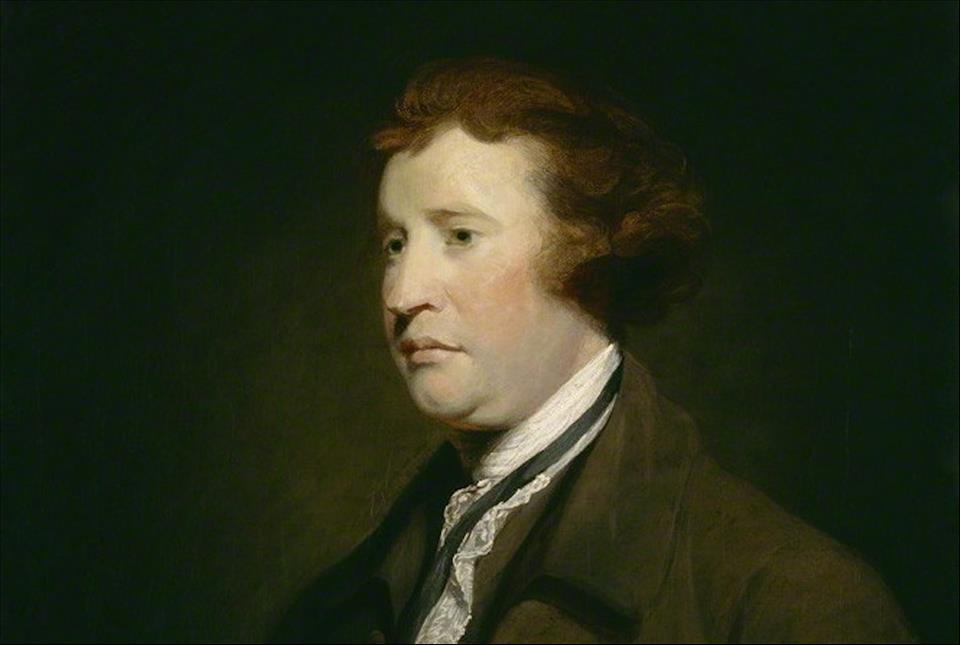
Modern Democracies Are In Crisis. Could 18Th-Century Political Theorist Edmund Burke Help Us Find A Way Out?
But this great year of elections will unfold against a backdrop of deep unease about the state of democracy. The number of democracies is declining, trust in democracy is weakening, and voter turnout is trending downwards.
Appetite for political reform is strong. Citizens have made their discontent known through abstention, protests, votes for anti-establishment candidates and even violence.
When thinking about how to address this crisis, we could do worse than looking to the 18th-century statesman and political theorist Edmund Burke (1729-1797) who witnessed a similar crisis of representation not long after entering the British parliament. I
n 1768, radical MP John Wilkes was excluded from parliament having been earlier outlawed for libelling King George III in a piece of journalism. Parliament then repeatedly refused to seat him when he won re-election several times, and eventually gave the seat to his defeated opponent instead. When troops fired on a crowd of Wilkes's supporters, killing several, riots engulfed London for days.
William Hogarth's satirical depiction of John Wilkes. Wikipedia
The reason parliament refused to admit Wilkes, Burke sensed, had less to do with his boorishness, demagoguery or slandering (today he would be branded a populist) and more to do with the opposition to King George that Wilkes gave voice to. Given that many members of parliament owed their pensions to the king, they were keen to avoid offending him by seating one of his enemies, even if this stoked popular anger.
When Wilkes became the focal point of a large campaign demanding political reform, MPs condemned the protesters as unruly (much as MPs today have tried to restrict protests in the name of public order). Popular sympathy with Wilkes even spread to America , where colonists' complaints about their own lack of representation had already occasioned violence and would eventually erupt into a full-blown war of independence.
The people can always annihilate youIn some ways we might have expected Burke to have sided with the MPs against a demagogue and his followers. After all, Burke is often associated with the view that representatives should be trustees rather than delegates – that is, they should be free to act according to their own judgement rather than bend to popular pressures.
Burke famously told his own constituents in Bristol that he would not always obey them, especially when what they wanted was either unjust or foolish. When some Bristolians objected to more toleration for Catholics, for example, Burke refused to heed them. On this basis, it would not have been surprising if Burke had explained to the protesters that their grievances were misplaced and their actions futile.
But this is not at all how Burke approached the Wilkes crisis. Burke disliked Wilkes but rather than lecturing his supporters for protesting or defending parliament's privileges, he warned his parliamentary colleagues about the dangers of failing to respond sympathetically to popular discontent.
What worried Burke was that parliamentarians would use public disorder as an excuse to numb themselves against legitimate protest, and so risk losing the people's trust. As a representative institution, Burke argued, parliament's job was to study and remedy popular complaints rather than dismiss them as unreasoned, unenlightened, or excessive. Even violent protesters never forfeited their right to representation.
As he put it in one of his speeches:
This is not a Burke that will be familiar to many today. But it is the Burke that politicians the world over need to listen to. This is because politicians more than ever have a long list of excuses – from populist insurgencies to disinformation campaigns, from AI-deepfakes to media manipulation – for disregarding anti-establishment complaint as absurd, inauthentic or irrational.
The consequences of that disregarding, however, could be disastrous. The people can always do more than just vote or protest. As Burke cautioned his fellow MPs, even when it looks like the people can“do nothing else” they“will always be able to annihilate you”. Burke's point was that all government rests ultimately on popular opinion , meaning that if people decide in large numbers to withhold their assent to obey, then something closer to a revolution could result.
Securing representative democracy may thus require politicians to show more openness to democratic reforms, more sympathy to protesters and less willingness to use populism as a pretext for democratic retrenchment.

Legal Disclaimer:
MENAFN provides the
information “as is” without warranty of any kind. We do not accept
any responsibility or liability for the accuracy, content, images,
videos, licenses, completeness, legality, or reliability of the information
contained in this article. If you have any complaints or copyright
issues related to this article, kindly contact the provider above.

















Comments
No comment